Have you ever wondered what are the films that inspire the next generation of visionary filmmakers? As part of our monthly IONCINEPHILE profile, we ask the filmmaker (this month: American indie filmmaker Theo Anthony) to identify their all time top ten favorite films. Anthony’s Rat Film received it’s theatrical release via MEMORY on September 15th (Lincoln Center in New York, Parkway Theatre in Baltimore, Facets in Chicago) and continues to expand (Los Angeles on October 14th at The Downtown Independent). In no particular order, here are Theo Anthony’s top ten films as of September 2017.
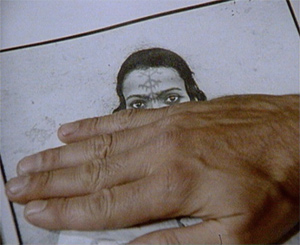
Images of the World and the Inscription of War – Harun Farocki (1989)
“Farocki finds poetry in history, using the slippery nature of the image and memory to create unstable connections and links. There is an experience of watching something but also becoming conscious of the act of watching. I find new meanings every time I go back to one of his films. His command of interdisciplinary materials and media has been probably the single greatest influence on how I’ve learned to assemble the types of work that I want to see out in the world.”
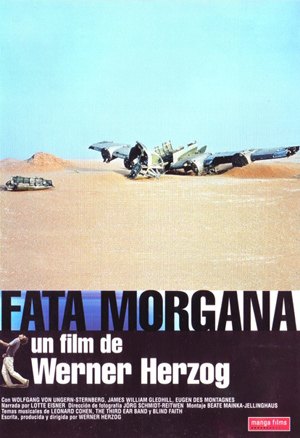
Fata Morgana – Werner Herzog (1971)
“I was fortunate enough to do a four-day master class with Werner Herzog in 2014. What I’ve learned from him goes far beyond filmmaking. It’s a way of living. It’s an infinite curiosity about everything you see, a deep wonder and respect for the universe that we live in, seeded with an insatiable skepticism of its very nature. Werner taught me to look for entry points into the strange through the very familiar. It’s a way of seeing that has made me a better person.”
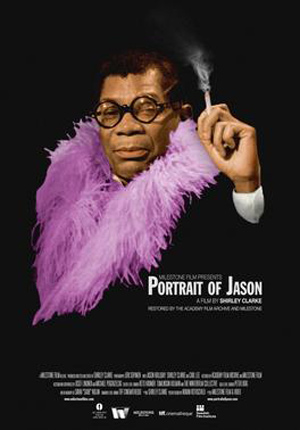
Portrait of Jason – Shirley Clarke (1967)
“This film has a lot of problems, but it’s a film that I think about often. It’s an incredible example of how a documentary subject can look back, can push back, can have the agency to define the frame that tries to define them.”
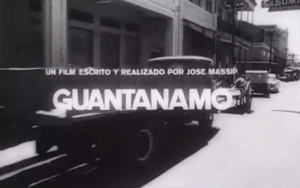
Guantanamo – José Massip (1967)
“I saw this film in a Cuba retrospective at DocLisboa last fall and it absolutely stunned me. Massip uses staged re-enactment, verité wanderings, and cold testimonial to confront the colonizing American presence at the Guantanamo Bay military base nearly 40 years before it would make headlines for their systemic abuse of prisoners. Its present day context hangs ominously over the entire film, just out of reach. Formally speaking, it’s an absolutely stunning experiment—I don’t think I’ve ever seen anything quite like it, except maybe Hiroshima, Mon Amour. I love films that genealogically trace the past into its present echoes.”
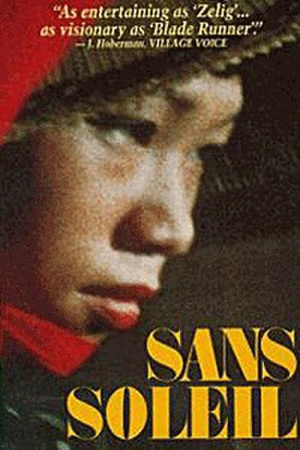 Sans Soleil – Chris Marker (1983)
Sans Soleil – Chris Marker (1983)
There’s a quote I read about Chris Marker that described him as an alien that had crash-landed on Planet Earth armed only with a camera to understand it. Seeing his work for the first time, I had no idea you could do that with images. The imposition of a subjective poetic narrator within a historical framework, the documentary as a sort of personal science fiction film. I felt liberated dropping my expectations of what a documentary should be by seeing what it could be.
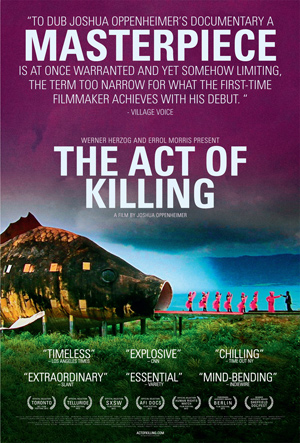
The Act of Killing – Joshua Oppenheimer (2012)
“As I said before, there is such a mastery of both content and form in Josh’s work, and an exploration of how they can work for or against each other. This was the first large scale experiment I had seen like this, and totally opened up my mind to the different possibilities of exploring the director/subject relationship.”
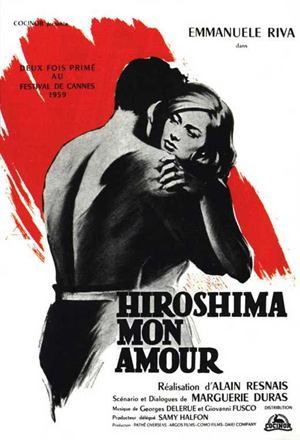
Hiroshima Mon Amour – Alain Resnais (1959)
“This film unapologetically borrows whatever formal device it needs to tell a beautiful story against the backdrop of a tragic history. These felt like new images to me.”
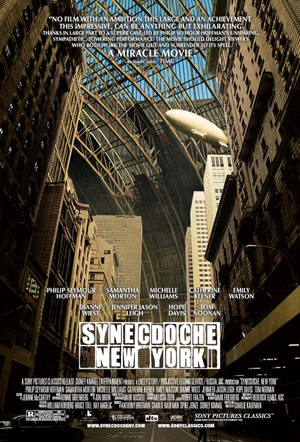
Synecdoche, New York – Charlie Kaufman (2008)
“The perfect example of harmony between subjective and structural approach—human stories caught in the towering framework of memory and existence, each informing the other in spiraling loops. I love this movie.”
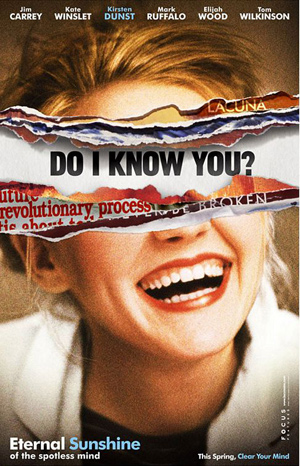
Eternal Sunshine of the Spotless Mind – Michel Gondry (2004)
“It uses not just the story, but the form, to tell something that in its self-reflection, becomes much, much deeper. This was the film I put on loop after my high-school break-up, and I’m not embarrassed to say that it’s still one of my favorite films.”
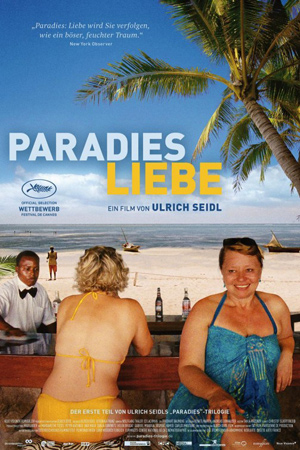 Paradise Love – Ulrich Seidl (2012)
Paradise Love – Ulrich Seidl (2012)
“I love how this film explores the ways in which people who have been hurt and exploited hurt and exploit others. Additionally, it uses its own messy classification as a scripted narrative (using non-actors, in a tourist destination) to explore the form’s vampiric relationship to reality. Long live the mess.“


